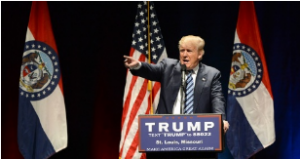The following article was first published earlier this week in The Lawyer. We reproduce it here with their kind permission.
Two days after the US Presidential election, the Atlantic magazine’s lead article, “The Trump Transition Begins,” opened with this short paragraph:
And now, a transition unlike any other.
You can say that again.
While it’s far too premature to predict what changes President Trump might bring (“How much of what he says does he really believe?” “Will bureaucratic forces of inertia prove implacable?” “Will scandal disable him?” “Does he really have a public mandate?”), it’s perhaps not too soon to ask what it might mean for lawyers in Washington, DC. (More AmLaw 200 firms have offices in Washington than any other city in the country.)
The usual minuet in transitions from one administration to the next is fairly easy to describe: The revolving door between government and law firms spins around and when the music stops many of the players have switched from public sector to private or vice versa but there are more than enough jobs for everyone. What if this time is the exception?
This may strike you as counterintuitive and indeed when we first began thinking about it we found it hard to believe. For 100 years or more the legal sector has tended to grow and prosper whenever important governmental initiatives or regulation change, going back at least to creation of the federal income tax in 1913. Wouldn’t it be safe to assume that repeal or reform of Obamacare, of Dodd Frank, of the corporate tax system, or trade regulations, of immigration law (etc., etc.) would be, all in all, great for lawyer employment?
I remain convinced that has to be true in the long run, but lawyers leaving government this month or hoping to enter it next don’t need jobs in the long run; they need jobs on or about January 20, and 98% of them probably want to stay in Washington, DC.
So what if this transition is, as it has been in every other way, unprecedented on the lawyer-job-market front?
We got an inkling of that from some observers on the ground in DC, and what follows is a mixture of some of their observations combined with our own economic/labor market perspective.
As with Brexit in the UK (topic for another day…), hardly anyone saw the Trump victory coming. This has had several consequences, starting with the most basic, that anyone who was busily cultivating their Hillary network has to start all over, and may be tarred by association in the bargain. And while we’re on the topic of Hillary, how many lawyers, lobbyists, and policymakers who were hard at work for the Clinton Machine are themselves abruptly on the street?
On the government-lawyer side, many incumbents want nothing to do with the new regime (or the new regime will want nothing to do with them), so an unusually high number of senior-ish people may be resigning if they haven’t already done so. How many senior lawyers, many with fundamentally interchangeable experience, can the private firms absorb?
Now, if they all brought generous promises of revenue with them, this might be less of a problem. (We’ve actually heard a managing partner say, not entirely facetiously, “If you’ve got the book, we’ve got the desk.”) But how many government lawyers have any “book” whatsoever? How many are truly marquee, calling-card names that clients would simply need to have in their corner? And how many have, or can quickly internalize, the private-sector fire in the belly it can take to build business from a standing start? Have they ever in their lives done that before?
Even if firms could find a home for everyone, no plausible financial projection would justify partnership for the vast majority. Are they then to come in as associates? In their 40’s or 50’s? As “counsel?” And what would that mean for the firm’s demographic balance? “Counsel” until retirement age?
Finally, perhaps the most important dynamic of all.
In any “normal” Presidential transition, let’s face it, the philosophical, ideological, and policy changes are incremental and not potentially seismic. I challenge any amateur observer of the US political scene to name half a dozen important policies that really changed from, say, Bush I to Bill Clinton, or even from Clinton to Bush II. (It’s cheating to claim events like 9/11 drove policy changes; of course they did, and the same would have been true had Millard Fillmore been in office.) So what?
So in a normal transition, institutional knowledge and expertise in the interstices of the regulatory agencies is transferable from one President to the next. This time around, no one has the remotest idea whether intimate knowledge of the grainy detail of business government as usual before January 2017 will have real relevance thereafter.
Add it all up and it looks as though lots of law firms are waiting to see how it will all play out, and, as is customary, familiar, and psychologically soothing for lawyers, to see what other firms decide to do first. It may be a long wait.




Well Said…………thanks for sharing this.